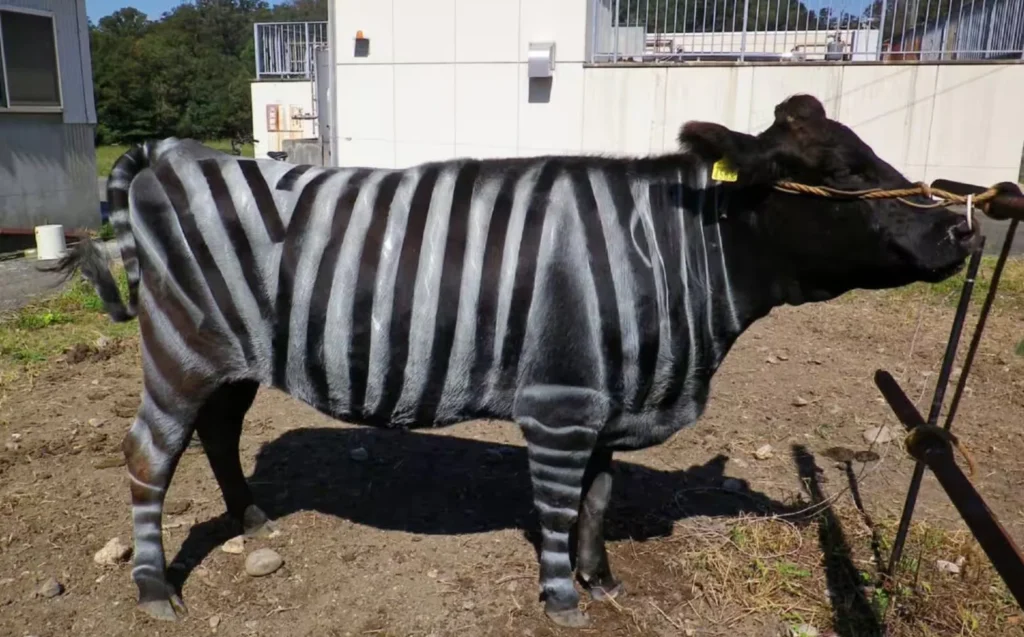A group of Japanese scientists has received an Ig Nobel Prize after discovering that painting cows with zebra-like stripes can help protect them from biting flies.
The unusual research was conducted by a team from Kyoto University and the Aichi Agricultural Research Centre, who experimented with painting black-and-white stripes on Japanese Black cattle. Their findings showed that striped cows were bitten by flies about 50 percent less than non-painted cows.
The study also revealed that the painted cows displayed fewer defensive behaviors, such as tail flicking, head shaking, and leg stomping—indicating they were less stressed by insect bites.
The idea came from earlier research suggesting zebras’ stripes help repel flies. The Japanese researchers applied the same concept to cattle after a farmer asked for advice on how to protect his livestock.

While pesticides are commonly used to prevent fly bites, they can cause environmental problems and lead to pesticide resistance. The team believes painting stripes could be a safer, chemical-free alternative—although the paint used in their experiment faded after a few days, showing the need for a longer-lasting method.
Farmers in Yamagata Prefecture, a region known for producing premium Wagyu beef, have already begun trying the method, reporting healthier and more relaxed herds.
One farmer told local media that the difference in the cattle’s comfort was “plain to see,” and that even the unpainted animals didn’t seem bothered by their striped companions.
The research was recognized at the Ig Nobel Prize ceremony in Boston, which honors quirky scientific studies that “first make people laugh, and then make them think.”
This marks the 19th consecutive year that Japanese researchers have won at least one Ig Nobel Prize. Other unusual winners this year included studies on what kind of pizza lizards prefer, whether foul-smelling shoes affect people’s experiences, and how alcohol impacts bats’ ability to fly.











